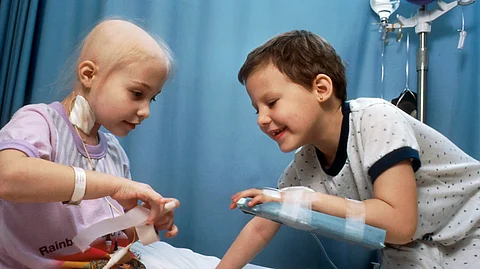

The Ministry of Health and Population has declared that children under 14 will receive free cancer treatment in Nepal from November 16. This move is intended to address financial barriers preventing families from continuing care.
Government hospitals such as Kanti Children's Hospital in Kathmandu, Bhaktapur Cancer Hospital in Bhaktapur, and BP Koirala Memorial Hospital in Chitwan would offer this free service, beginning from November 16.
Health Minister Paudel
According to the minister's office, the program will leverage state resources to deliver no-cost cancer treatment, initially targeting children under 14.
Health officials report that over two-thirds (71%) of deaths in Nepal stem from non-communicable diseases, with cancer accounting for 11% of these deaths. In 2022 alone, 22,000 new cancer cases were diagnosed and more than 14,000 succumbed to the disease.
The ministry's goal is to provide financial support to prevent these young patients from discontinuing life-saving treatments. Ministry spokesperson Dr. Prakash Budhathoki assured that any funding shortfalls would be met through internal resources.
The government have reaffirmed its commitment to making essential medications affordable. And also have made discussion focused on medicine pricing, and also necessity of immediate adjustment to maintain affordability without compromising the viability of suppliers.
Approximately 500,000 people in Nepal are pushed to poverty each year due to medical expenses, an issue highlighted by Minister Paudel in the government's recent 100-day progress report. The newly established committee, led by economist Dr. Poshraj Pandey, has recommendations for fair and sustainable drug pricing adjustments.
Earlier this year, Nepal had signed an agreement with World Health Organization (WHO) to join the Global Platform for Access to Childhood Cancer Medicines (GPACCM). This platform, developed in partnership with St. Jude Global, is designed to enhance access to essential cancer medications for children in low-and middle-income countries.
Through this initiative, Nepal will receive 35 types of childhood cancer medications at no cost for four years, while WHO and UNICEF provides technical support to strengthen the healthcare distribution network.
Aligning with the Global initiative for Childhood Cancer's 2030 goal of 60% survival worldwide.
(Input from various sources)
(Rehash/Josna Lewis/MSM)
